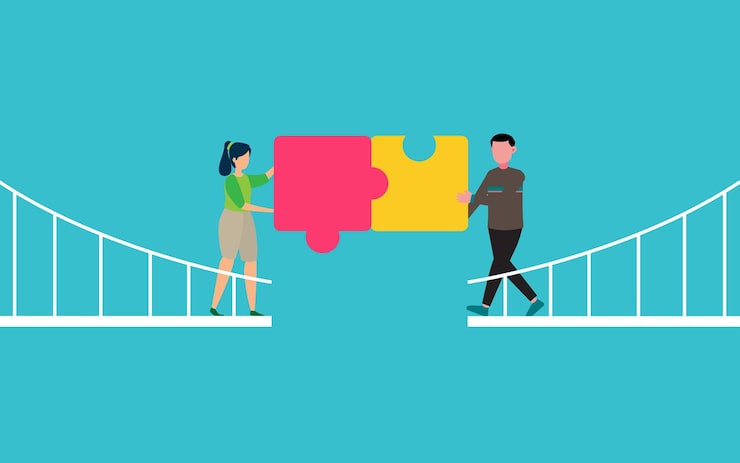

Equivocado
Los puentes se caracterizan por crear vínculos y unión, acortando las distancias, logrando comunicación entre un lugar con otro y con las personas; es decir, unen, no separan. Aunque está claro que ese es su objetivo; sin embargo, hay cierta confusión cuando alguien cruza un puente que no lleva a ninguna parte; y eso pasa cuando no sabes por qué lo haces y otros, por el contrario, están equivocados, así no podrás llegar nunca a destino y no es culpa del puente porque todos llevan a un destino, solo hay que elegir el correcto.
Hay muchos caminos largos, cortos y con atajos que son transitados a pie o en carro por las personas; van y vienen porque lograr llegar a donde quieren y volver también; así mismo están los puentes para conectar. Entonces cuando no te llevan a ningún lugar, quien tiende a equivocarse es la ´persona o muchos a la vez; quien da indicaciones erradas como direcciones, nombres de lugares o quien se lanza sin rumbo fijo y cuando reacciona ve que no llega a ninguna parte busca culpables, en ese caso es mejor devolverse y cuando este seguro vuelve a retomar camino.
Sucede que ante situaciones así a las personas les cuesta aceptar que se equivocan y sobre todo comenzar de nuevo; está esa constante en su cabeza de que ya perdieron el tiempo y no ven posible recuperarlo. Esto les pasa con todo en cualquier escenario de su vida y van con esta analogía de decir que es el puente que no lleva a ninguna parte, y eso no es del todo cierto.

Wrong
Bridges are characterized by creating connections and unity, shortening distances, and facilitating communication between one place and another and between people; that is, they unite, they do not separate. Although this is clearly their purpose, there is some confusion when someone crosses a bridge that leads nowhere. This happens when you don't know why you are doing it, and others, on the contrary, are mistaken. This way, you will never reach your destination, and it is not the bridge’s fault because all bridges lead to a destination; you just have to choose the right one.
There are many long, short, and shortcut paths that people travel on foot or by car; they come and go because they want to get where they want to go and come back as well; likewise, there are bridges to connect them. So when they don't take you anywhere, it's the person or many people at once who tend to make mistakes; those who give wrong directions, names of places, or those who set off without a fixed destination and when they realize they're not getting anywhere, they look for someone to blame. In that case, it's better to turn back and when you're sure, get back on track.
It happens that in situations like this, people find it difficult to accept that they are wrong and, above all, to start over; there is this constant thought in their heads that they have already wasted their time and see no way of getting it back. This happens to them with everything in every aspect of their lives, and they use this analogy of saying that it is a bridge to nowhere, which is not entirely true.
Translated with www.DeepL.com/Translator (free version)


> Fuente: Extraído del blog de @latino.romano para el mensaje diario de 5 minutos.
https://images.hive.blog/DQmU69PgwvC7h3VT7yVhQoSsaiq64y5XbZEuoyug5XpUerN/imagen.png